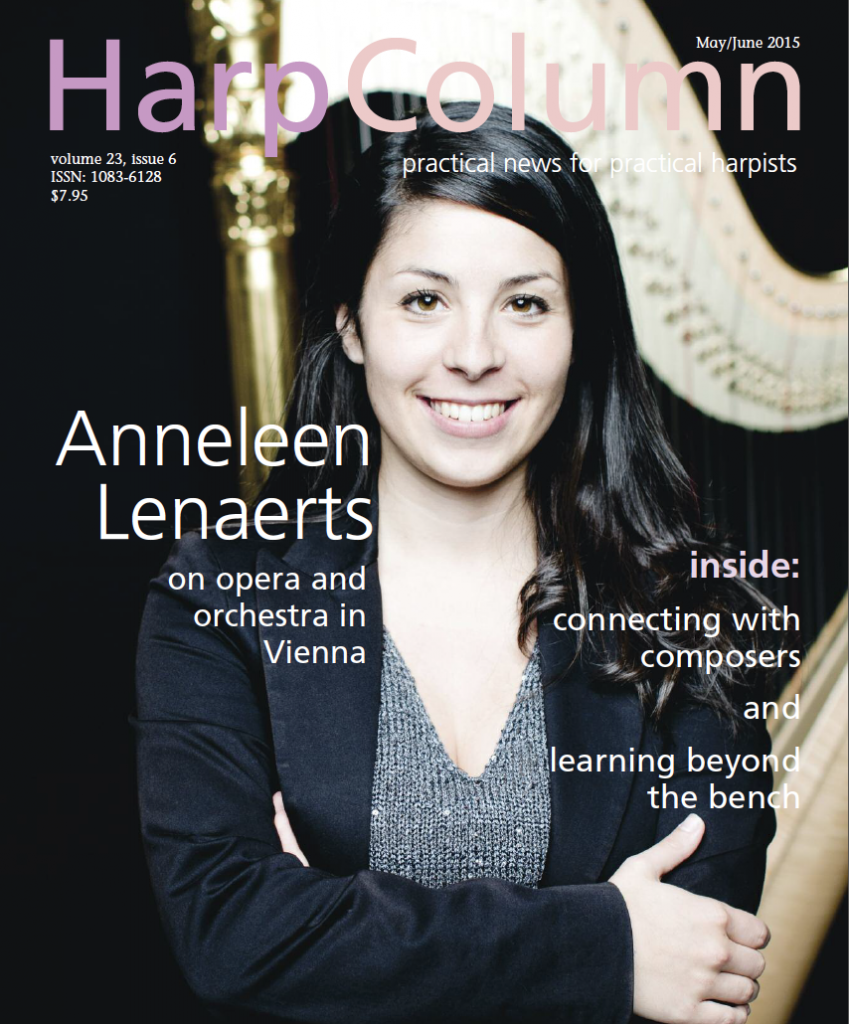
Excellent communication is key in any business. As a teacher and performer, communicating with students, their parents, clients, and booking agents is an everyday occurrence. Being prompt and courteous, without being invasive in those communications, is very important, and the reverse is also true.
I do not work on a smart phone. Call me a dinosaur, but I don’t like being constantly connected. I have a landline and cell phone. However, I do not give students or clients my cell number.
When I hand out my phone number, I stipulate all incoming calls must be before 10 p.m. and I will not call them after 8 p.m. Since I don’t give out my cell phone number, texts are not an issue.
Clients for whom I am playing a funeral will receive my cell number if I will be away from my landline or computer. Those are last minute engagements, plans are made quickly, and the client is already under a lot of stress, so not being able to contact me when they feel the need adds to their stress.
No matter your style or method of communication, the key is to be prompt in your response but not to invade the privacy of others. That doesn’t mean a 10-second turn around, but don’t let it go days, unless you are truly unreachable. If it is a job and you are unavailable, let the client know. If it is a potential student and your studio is full, tell them. By taking the moment to respond, you will cut down on the number of communications you receive from someone.
My forms of communication have changed over the past 35 years; however, being prompt and courteous has remained steadfast.

Like many other harpists I have heard from and about, I have experienced a bit of a decline in gigging business these days. To tell the truth, I try to make a point of responding to inquiries as soon as possible and have not had a problem with excessive emails or texts. In fact, although I don’t love texting, I find myself using it more and more. For example, it’s a great way for students to let me know if they are running late without interrupting a lesson in progress with a phone call. It has the advantage of being quiet and relatively unobtrusive, which is especially important when I am doing therapeutic music. It’s also a very effective way to communicate with wedding planners or coordinators who may not be able to answer a phone call right away. Like it or not, texting is definitely the way of the future.
As for emails and phone calls, I try to answer them within 24 hours at the most.
As a professional, I feel that being responsive is a big part of my job. When I am so busy that this is a problem, I may revisit the issue but at the moment it is a not a problem for me.

I think most people expect that a voicemail, email, or text will not be returned immediately, especially with people who don’t sit at a desk with a phone all day. I have a responsibility to return all messages as soon as I’m able, regardless of who the caller is. I reply in the same manner as the message arrived, but for an email or text, I may request a phone conversation, especially with a new client.
I’ll return a phone call at a reasonable time of day, not early morning, dinnertime, or late evening. If I have to leave a voicemail, I offer some times that are good to reach me with a return call. Emails and texts can be sent any time, as they usually don’t wake people up or interfere with their activities.
In my lesson agreement, I require that the student call me rather than use email to cancel a lesson within 24 hours of the lesson. For me, a phone call is more immediate—even with voicemail—than an email. Since I now only have a cell phone, either a call or text will work.
Of course, like everyone else, I rely on voicemail in the early morning, late evening, or any other time I’m unable to answer the phone. If the call goes to voicemail, I owe the student the courtesy of calling back as soon as I’m able, even to leave a voicemail to acknowledge that I received the message and to let the student know that the lesson can be rescheduled or forfeited.
For a client with a new booking, if I don’t return the call promptly, the client may fill the job with someone else in the meantime. For an existing client, I owe her the same courtesy as anyone else with a prompt callback.
Long ago when I had a landline, a client called at 7:30 a.m. on a Saturday and woke me up. I sleepily told her I would call her back a little later when I was awake, which I did. The other solution would have been to let the call go to the answering machine, but a call at that time could have been urgent from family or a friend. •














